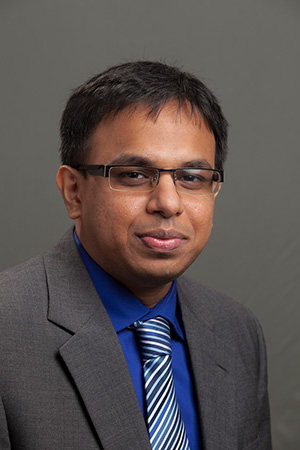Dickinson College is closed Sunday, Jan. 25 through Monday Jan. 26.
Faculty Profile
Shamma Alam
Associate Professor of Economics (2014)Contact Information
Althouse Hall
717-254-8167
https://sites.google.com/view/shamma-alam
Bio
Shamma Alam’s research focuses on different aspects of international development, such as health economics and health measurements, fertility issues, agricultural economics, public finance, and microcredit. He has worked as a Consultant with different development organizations. He served as a Consultant at the World Bank several times, including in their Economic Policy, Poverty and Gender Group, Development Data Group, and East Asia and Pacific Region group. He also previously served as a consultant in the Agriculture Policy Team at the Bill and Melinda Gates Foundation. In addition to teaching at Dickinson, Shamma Alam serves as a Research Associate at the CEQ Institute at Tulane University and contributes courses at the U.S. Army War College. Shamma Alam received his M.A. and Ph.D. in Economics from the University of Washington, Seattle, and B.A. in Economics from Franklin & Marshall College.
Education
- B.A., Franklin & Marshall College, 2009
- M.A., University of Washington-Seattle, 2011
- Ph.D., 2014
2025-2026 Academic Year
Fall 2025
ECON 268 Inter Macroeconomic Theory
Neoclassical theories of economic behavior in the aggregate. Models will be used as a framework for analyzing the determination of the level of national output and for explaining fluctuations in employment, the price level, interest rates, productivity, and the rate of economic growth. Policy proposals will be appraised.
Prerequisite: 111 and 112; MATH 170.
ECON 496 Research in Development Econ.
Permission of Instructor Required. This class will focus on research in development economics. As the world economy becomes increasingly interconnected, the course will shed light on how both global and local factors influence economic development across different regions. The class would cover key topics in global development, including children's education, child labor, health issues, population and fertility dynamics, household bargaining issues, international migration, effects of climate change, and agricultural practices. Students will explore how various global economic factors, such as economic policies, financial systems, and the roles of international organizations, impact development outcomes across different countries. The course aims to equip students with the analytical tools and knowledge necessary to comprehend and critically evaluate research in economics
ECON 500 AI Adoption in Institutions
ECON 560 Stu/Faculty Collaborative Rsch
Spring 2026
ECON 112 Intro to Macroeconomics
Permission of instructor required.
ECON 268 Inter Macroeconomic Theory
Permission of instructor required.
ECON 500 Independent Study
ECON 560 Stu/Faculty Collaborative Rsch
QECN 560 Stu/Faculty Collaborative Rsch
